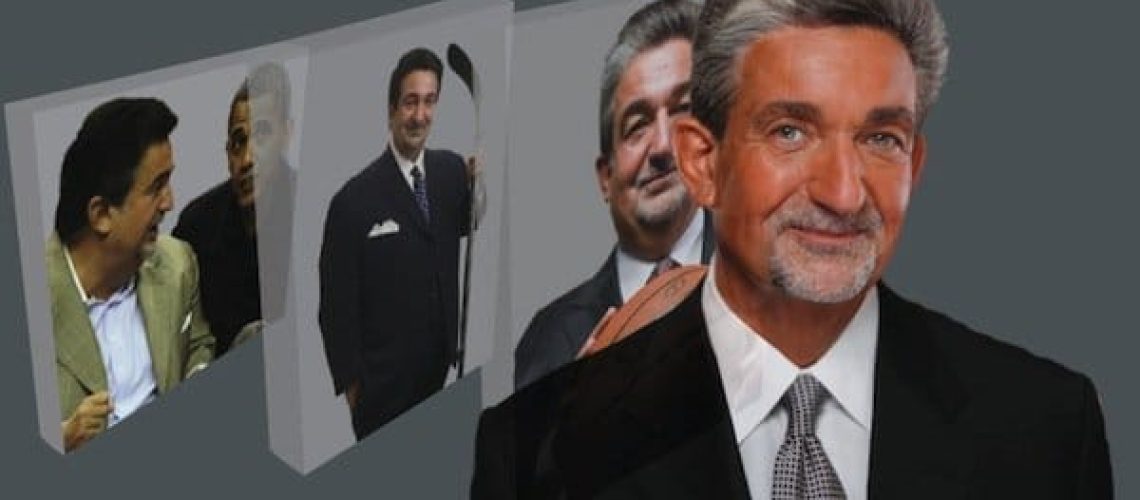First off, it wasn’t me who had the conversation with the Billionaire. Sorry. It was James Altucher on his podcast as he interviewed Ted Leonsis. If you have never listened to James you need to know that he is quite the character. He opens the conversation with an ever so smooth “I’m gonna straight out say that you’re a billionaire. I don’t know if you call yourself that or like to talk about that….” What a great way to capture an entrepreneurs attention. You had me at “Billionaire”.
Ted made his first $70 million when he sold his first company at the tender young age of 26. Ted went on to sell another company Redgate Communications, to America Online and stayed on with AOL in a senior management role where he helped take AOL from 800,000 users to over 8 million users. During this same time their annual revenue increased from $100 million to $1.5 billion. Clearly they were doing something right at that time and Ted talks about this in the interview. Ted owns the Washington Wizards, the Washington Capitals, Verizon Arena, SnagFilms, he is the Chairman of Groupon and author of The Business of Happiness. The list goes on from there.
If you are “successful” it doesn’t necessarily mean you are happy but if you are happy you have a much greater chance of becoming “successful”.
- That you become an active participant in multiple fields of interest.
I found this one very interesting as it is something that I have started to explore more an more in my own personal life. Having multiple fields of interest is a great source for creativity both personally and in business. It is often at the intersection of two different fields of interest where innovation is born. I am currently in the middle of Stephen King’s book “On Writing” were he talks about his own creative process. In it he tells the tale of how the book Carrie came to be. It was the combination of thoughts on adolescent cruelty and something he had heard about telekinesis that lead him to craft the story. - You need to have high levels of self expression
Ted blogs every day. He has made movies, he’s written books. Companies that activate the collective creativity of their customers and their employees are more prone to be financially successful and have higher levels of morale throughout. - You need to have very high levels of empathy
The lack of empathy is what creates evil within our society. Sociopaths by definition are devoid of empathy. The flip side of that is that those with high levels of empathy tend to have monuments built to them. Ted cites Martin Luther King as a perfect example of a human being who had a high level of empathy. With respect to business he uses the example of Sergei Brin of Google when they made the foray into the Chinese marketplace.
into the Chinese marketplace. - Get out of the ‘I’ and into the ‘We’
There is a power of coupling, a wisdom of crowds that can be tapped into when we move away from being entirely self focused. When you get into the ‘we’ your perspective changes, your context of where you sit in the world order tends to be dramatically enhanced. He tells the story of an acquaintance who complained of a bad lunch. The food was poor as was the service and this had clearly become a defining moment of his day. Contrast that with the DC Central kitchen two miles down the road that takes in homeless people and teaches them how to cook and become chefs, then takes the food that they make to either be delivered to or served to others in need. Guaranteed if you spend an afternoon volunteering at DC Central kitchen you will not likely complain about the quality of the food or the service at your lunches in any restaurant any more. - Find the higher calling in all of your pursuits.
Through the story of the success of AOL and subsequent merger with Time Warner we are shown the difference between an organization that gave their employees a sense of a higher purpose and one who does not.
Personal higher calling: - Create double bottom line businesses
There is more and more emphasis on the desire to work for organizations that focus on that double bottom line. Where there is emphasis on both profit as well as the social impact that they have. There is a real optimism with the next generation of youth with respect to what they want to see from employers.
Overall Ted presents himself extremely well and comes across as a humble human being that genuinely cares about the world around him. I found the conversation stimulating and thought provoking. As someone who has experienced a modicum of financial success the idea of pursuing happiness instead of the traditional definition of success really resonated with me. For me happiness is about feeling fulfilled, feeling like I have lived my higher purpose. I no longer pursue the financial goals of yesteryear but instead seek to find my way to leave a lasting mark on my community and to live my legacy. I have ordered his book and am thoroughly looking forward to reading it.
